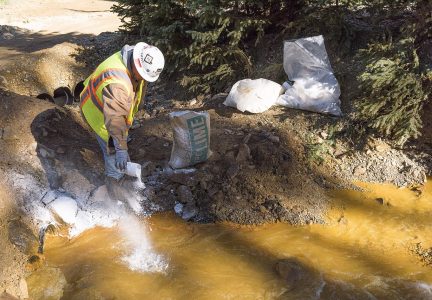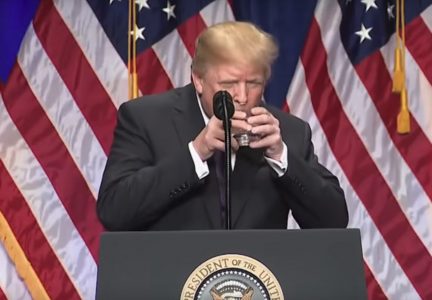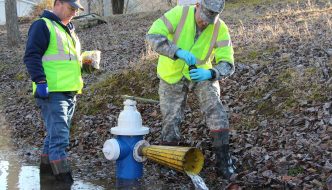There’s a coal crisis in Appalachia, specifically in West Virginia, but the problem is not a lack of coal. There’s plenty of coal to be had in the Mountain State. In fact, 28 counties in West Virginia produce coal on a regular basis, and the West Virginia Coal Industry provides about 30,000 direct jobs in West Virginia, including miners, mine … [Read more...]
New Hampshire Releases New Standards for Chemicals in Drinking Water
Food wrappings, fire-fighting foam, metal plating, carpet, and upholstery are just a few of the things PFAS are used to make. PFAS can also be found in drinking water, and when consumed by humans, PFAS chemicals can cause cancer, hormone disruptions, low birth weights, increased cholesterol, thyroid disease, and immune deficiencies. PFAS stands for … [Read more...]
Toxin Levels High in Some Detroit Schools’ Water
A recent report shows that 57 schools in the Detroit Public Schools Community District have shown dangerous levels of copper and lead, and many schools’ results are not even available yet, which means that number is likely to rise. These results were made public as the school district is actively developing plans to make drinking water safe in … [Read more...]
Federal Government Still Hasn’t Paid for Gold King Mine Spill
The Federal Government is under fire from three states, numerous individuals, and other entities awaiting payment for damages incurred in August 2015 when an EPA-led contractor crew doing excavation at the entrance to Gold King Mine in Silverton, Colorado accidentally allowed three million gallons of wastewater to spill out into the mine. Rivers in … [Read more...]
Congressional Candidates Center Campaigns Around Drinking Water
The Trump administration has taken steps to roll back measures meant to mitigate the negative public health effects associated with coal-ash pits. In 2008, following the expulsion of billions of tons of toxic sludge from a coal-fired plant in Tennessee, the EPA introduced regulations pertaining to coal ash. Those rules were implemented three … [Read more...]
North Carolinians Suffer While Hog Farmers Lie About Toxic Waste Levels
After testing 55 hog waste pits at 35 farms in North Carolina, regulators have discovered major discrepancies between the actual levels of toxic waste and those that have been self-reported. According to state regulations, hog farmers must mitigate the amount of air and water pollution generated by lagoons, or cesspits where hog waste is stored. … [Read more...]
Study Sheds Light on Drugs in Water Treatment Plants
A new US Geological Survey study found that water treatment centers receiving waste water from pharmaceutical facilities tend to have much higher levels of drugs than other treatment plants. The study is one of the first national studies of its kind, offering more evidence that pharmaceutical drugs are ending up in our water sources. Jose Lozano, a … [Read more...]
Trump’s Infrastructure Plan Could Majorly Hurt the Nation’s Waterways
On February 12th, the Trump administration released a plan for changing the way infrastructure projects are carried out. The plan contains recommendations that have environmentalists and public health experts worried. Specifically, the administration proposes streamlining the permit process for dumping “dredged or fill material” into various water … [Read more...]
Approval of $151 Million Water Crisis Settlement Is Imminent
It’s very likely that a federal judge will approve a $151 million settlement, almost exactly four years after the Freedom Industries chemical spill that caused a water crisis in Charleston, West Virginia. Out of thousands of claimants, there hasn’t been a single objection – a fact that has been the source of much surprise. Without the pushback that … [Read more...]
EPA Issues Proposal to Rescind Clean Water Rule
In February, Donald Trump issued an executive order asking EPA director Scott Pruitt, an avid climate change denier, to review the so-called Clean Water Rule. In late June, Pruitt’s agency, together with the Army Corps of Engineers, has submitted a proposal to rescind the rule and return to the original regulatory language from before the … [Read more...]












